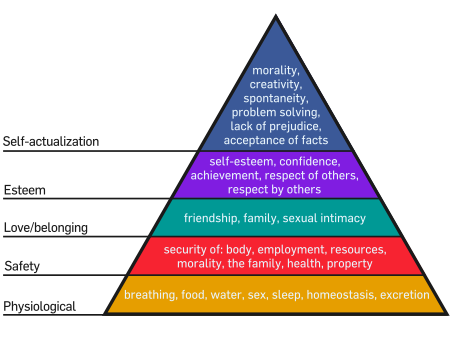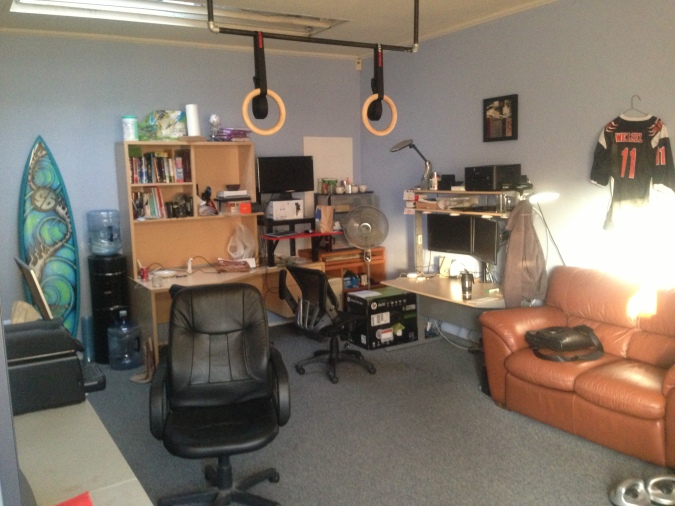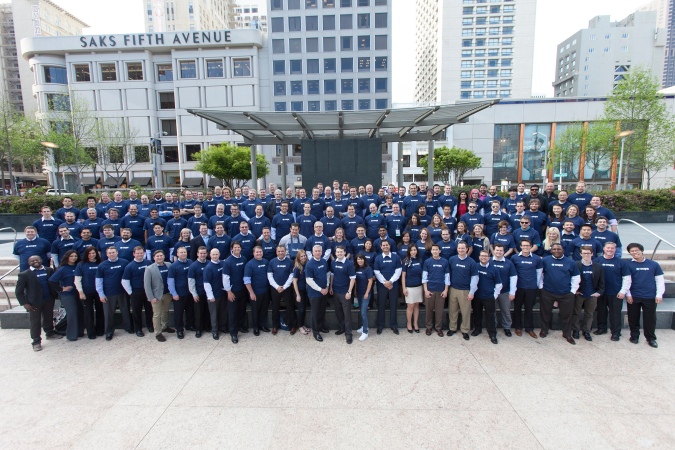Just finished Made to Stick. Here are some quick notes.
The book is about how to turn your ideas into reality. Ideas are incredibly powerful– they are the root of everything we do. They can do something as simple as convince your friends to a restaurant you've wanted to try, all the way to getting somebody to quit their cushy job and help you start that company you've wanted to build.
But frequently our ideas get ignored. Months later after an opportunity has been missed or taken advantage of by someone else, you mutter under your breath, 'I had that idea months ago.' A useless comment — you failed to get the buy in because you couldn't convey the value of the idea.
Miscommunication is defined as when an expert (someone who thinks abstractly) can't communicate with a novice (thinks concretely). The book provides a framework to bridge that gap.
It's called the SUCCESs framework (a bit cheesy, I know, but bear with me).
Simple
Unexpected
Concrete
Credible
Emotional
Story
Simple
Keep it simple. Every idea can be conveyed in 1 simple sentence.
An example — Southwest Airlines. Their mantra is, 'We are the low cost airline provider'. Nothing gets in the way of that. When people are coming up with new ideas, adding new things, changing things — they always go back to that single idea. Does this help us become the low cost air provider? If not, then the answer is no.
It's simple, powerful, and succinct. Everyone can remember it and start to make better decisions based on it.
Unexpected
If you can't grab people's attention, they won't listen. If people don't listen, you can't get your idea out. You need to do/say something unexpected or contrarian to get people listening and thinking.
Create knowledge gaps. Lead people down a road and pause — as they fill in the next part on their own — reveal something unexpected. It'll catch them off guard and keep them hooked, with the added benefit of creating a platform for them to start coming up with their own ideas/thoughts.
Concrete
Concrete details are how to appeal to the masses. But concrete details are a double edged sword — say too little and nobody knows what you're talking about. Say too much, and the audience loses interest.
Limit concrete details to 3 things — associations, self interest, and identities.
Associations are things people are familiar with. You can describe a grapefruit to someone who's never seen a grapefruit in 2 ways — as either a fruit with a soft & porous skin with an edible pulp, or you can just say it's a larger, bitter orange. Simple and concrete.
2nd is self interest — what is in it for me. The audience wants to know why they should care. Use concrete details to describe and sell the benefit of the benefit. You're not selling power drills, you're selling the ability for the audience to hang up pictures of their kids on the wall.
Last is identities. Who am I, and what would someone like me do? Play to people's identities — learn what that group wants, and then describe it in detail.
Credible
You have to be credible. Reference experts (Dr. Yin says don't smoke), aspirational people/celebrities
(Lebron doesn't smoke), the antihero (this ex-smoker with cancer says don't smoke), or yourself (I quit smoking after I found out I was getting sick).
Emotional

Maslow's hierarchy. The lower end is physical needs. The higher end is emotional needs. Take your idea from something serving the lower end of Maslow's hierarchy and aim higher. The stronger the emotion, the stronger the purpose.
Pegasus hall is an army mess hall in Baghdad. Imagein a mess hall — thousands of sweaty soldiers pouring into a dirty cafeteria. Soldier after soldier in line grabbing food from an assembly line and eating off of a plastic cafeteria tray. Doesn't conjure a grand image.
One cook realized there was something more. Meal times were not simply just eating. For the soldiers, meal time was downtime; they were recharging. If they didn't eat well, they would be sluggish and unmotivated during the next mission. If they were took a nice break and relaxed, morale would be high and the would perform better on the field. Meal time wasn't about food — it was about recharging morale.
The cook spread the word to his team. From then on, Pegasus was known for the amazing meals they prepared. Fresh fruit, perfectly cooked steak, and spotless mess halls. Cooks would go through buckets and buckets of fruit to pick out the good ones. Wade through pounds of bad meat to find good pieces. All for the same pay and with the same ingredients at other inferior mess halls.
Aim high on Maslow's hierarchy. Serve a higher purpose.
Story
All of the above are components of a good story. Good stories are how experts (think abstractly) communicates with novices (think concretely).
There are 3 types of stories. Challenge, connection and creativity.
Challenge – the classic David vs Goliath story.
Connection – the 'Chicken Soup' type of story. An emotional story pulling on your heart strings — ie Help this starving child in Africa, etc.
Creativity – the mental challenge. A story with turns and twists that challenges the audience to follow along and guess what is going to happen next.
Use these types of stories in different situations. If you're about to go into battle, get your troops riled up by telling a challenge story. If you want people to donate money to your charity, an connection story is probably better.
The biggest barrier to doing all this successfully is the curse of knowledge. The curse of knowledge is when you know more than your audience and leave out important details because you assume they are already known.
tl;dr
The way to get your ideas out is to become a great storyteller. The best part is you don't have to create the stories. If you can learn to spot great stories and re-tell them, you'll be golden.
Use the SUCCESs framework to craft your story and get your idea heard.
Tell a Simple, Unexpected, Concrete, Credible, and Emotional Story.


